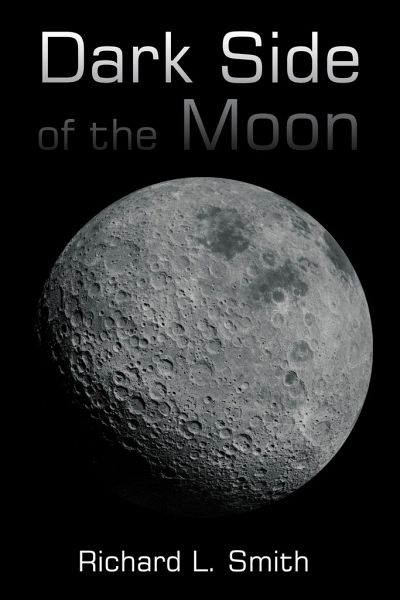
The Dark Side of the Moon

PAYBACK Punkte
7 °P sammeln!
Why you may ask, is the name of this novel "The Dark Side of the Moon"? The back side of the Moon is not dark, it receives as much sunlight as the front side does. The term "dark" is often used in Science to denote our lack of knowledge, such as in Dark Matter and Dark Energy. Because the moon's front side always faces earth until recently no human has been able to see the Moon's backside. That is until 1979 when the Soviet space probe Luna 3 took the first grainy photographs and in 1968 the Apollo 8 astronauts viewed the backside firsthand. Astronomers were shocked, for the backside looked no...
Why you may ask, is the name of this novel "The Dark Side of the Moon"? The back side of the Moon is not dark, it receives as much sunlight as the front side does. The term "dark" is often used in Science to denote our lack of knowledge, such as in Dark Matter and Dark Energy. Because the moon's front side always faces earth until recently no human has been able to see the Moon's backside. That is until 1979 when the Soviet space probe Luna 3 took the first grainy photographs and in 1968 the Apollo 8 astronauts viewed the backside firsthand. Astronomers were shocked, for the backside looked nothing like the front side does, it was if the moon had been slapped together by two totally different processes. My novel takes place in the 6th decade of the 21st Century when NASA has funded Project Farside, an observatory to be built on the Moon's backside. Placed in the crater Daedalus, the Lemaitre Synoptic Telescope (LST) is slated for "first light" in August of 2067, but this event is delayed by several problems, including a mysterious sabotage of the LST. The story follows the career of Dr. Seth Byrne, the first director of the Farside Observatory, and how Seth and his team resolve the delays and achieve "first light". The project goes on to explore the Universe with new Project Farside instruments and explore the backside. Their discoveries remove some of the dark surrounding our knowledge of the backside of the moon.













